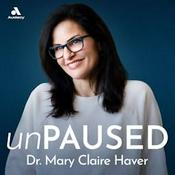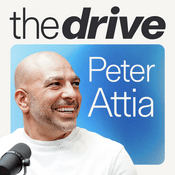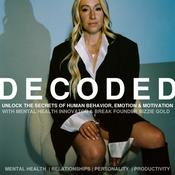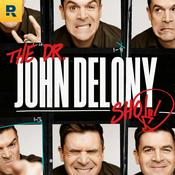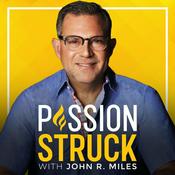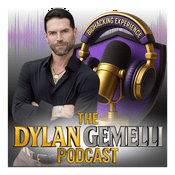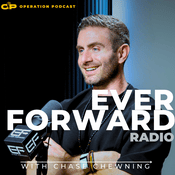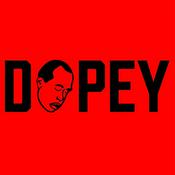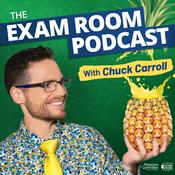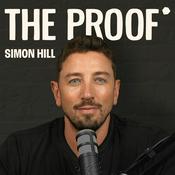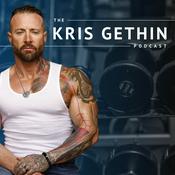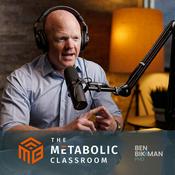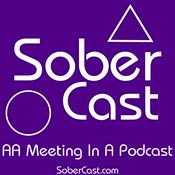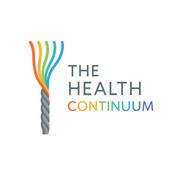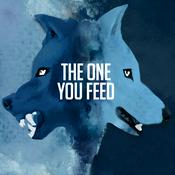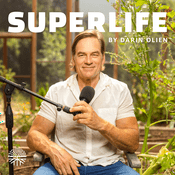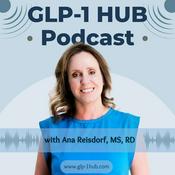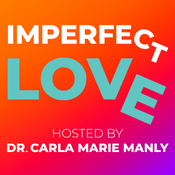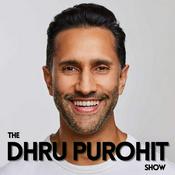200 episodes

Your Friday Fave: The One Question That Changes Everything
1/09/2026 | 5 mins.
Send a Text Message. Please include your name and email so we can answer you! Please note, this does not subscribe you to our email list, it's just to answer if you have a questions for us. This week’s Your Friday Five centers around a single question—one that has the power to shift your mindset, your habits, and the way you evaluate progress. I came across it in a video from Jamie Seltzer (linked below), and it stopped me in my tracks:“If every week was like last week, would I be closer to my goal?”In this episode, I break down why this question works, how it cuts through perfectionism, and why zooming out to that 30,000-foot view gives you more clarity than obsessing over small slip-ups. We talk about what to do if your answer is “yes,” what to do if your answer is “no,” and why understanding why you had an off week is more important than beating yourself up for it.You’ll also hear a simple way to build this question into your weekly routine—whether that’s a Friday afternoon alarm, a sticky note, or a reminder tucked into your planner—so it becomes a guide instead of a forgotten moment of inspiration.This episode is your permission to release perfection, get honest without judgment, and steer yourself gently back on track.Links: → Watch Jamie Seltzer’s original video All of the information on this podcast is for general informational purposes only. Please talk to your physician and medical team about what is right for you. No medical advice is being on this podcast. If you live in Indiana or Illinois and want to work with doctor Matthea Rentea, you can find out more on www.RenteaClinic.com Not Sure Where to Start With the Podcast? I’ve Got You.Get my free Podcast Roadmap—a simple guide to help you find the episodes that matter most to your journey. Whether you're on GLP-1s, navigating plateaus, or just starting out, there's something here for you.Support the show

New Obesity Medications Coming 2026-2028
1/05/2026 | 20 mins.
Send a Text Message. Please include your name and email so we can answer you! Please note, this does not subscribe you to our email list, it's just to answer if you have a questions for us. Weight loss medications are evolving at lightning speed. But once you start digging online, it’s easy to feel unsure about what’s real, what’s safe, and what your options actually are if a medication stops working.In this episode, I walk you through what’s genuinely on the horizon between 2026–2028, using the clinical data we have right now. We’re talking higher-dose oral Wegovy, more affordable non-refrigerated options, and the triple agonist many people are waiting for, with nearly 29% average weight loss. Tune in to find out how these medications work, what the research is showing so far, and why this pipeline offers real hope for anyone managing obesity as a chronic disease.ReferencesTimeline of upcoming obesity medicationsColoring recommendations:Alcohol Markers Coloring books Season 2 of The Obesity Guide: Behind the Curtain PodcastGet my free Podcast Roadmap—a simple guide to help you find the episodes that matter most to your journey.Audio Stamps00:30 – The importance of building a dopamine menu with non-food hobbies to manage obesity long-term.06:08 – Staying open to new treatments and pivoting strategies in managing a chronic, lifelong disease.07:48 – Oral Wegovy coming early 2026 with improved results and affordability.10:00 – Higher-dose Wegovy subq arriving with 21% average weight loss.11:50 – Orforglipron: a new non-refrigerated oral GLP-1 option.12:40 – CagriSema combines semaglutide with amylin for enhanced results.14:20 – Retatrutide overview and warnings about unregulated versions.15:All of the information on this podcast is for general informational purposes only. Please talk to your physician and medical team about what is right for you. No medical advice is being on this podcast. If you live in Indiana or Illinois and want to work with doctor Matthea Rentea, you can find out more on www.RenteaClinic.com Not Sure Where to Start With the Podcast? I’ve Got You.Get my free Podcast Roadmap—a simple guide to help you find the episodes that matter most to your journey. Whether you're on GLP-1s, navigating plateaus, or just starting out, there's something here for you.Support the show

Your Friday Five: The “Prepared, Not Perfect” Nutrition Reset
1/02/2026 | 10 mins.
Send a Text Message. Please include your name and email so we can answer you! Please note, this does not subscribe you to our email list, it's just to answer if you have a questions for us. In this New Year edition of Your Friday Five, we’re talking about the ONE strategy that consistently transforms my patients’ nutrition—and my own. Winter is here, the days are darker, and this is the time of year when energy dips and cravings rise. Instead of fighting it, let’s set you up to feel better from the inside out.In today’s episode, I walk you through my simple “2 protein + 2 fiber” system that keeps your meals effortless, balanced, and ready when you need them—not after hunger hits. I share exactly how I prep my fridge, the card-stock list I keep posted, and the easy breakfast, lunch, dinner, and snack combos that make nutrition feel doable (even on your busiest weeks).You’ll also hear how to grab my free “Prepared” PDF and the lentil red sauce (“Steve”) recipe, plus how to comment on social to get them sent straight to your DMs.This episode is all about real-life support—not perfection. When you have go-to meals ready, you give yourself a fighting chance for better energy, better mood, and better consistency as you move into the year.Links: → Note I miss-spoke on the episode and it's comment "sauce", not Steve, to get the red sauce recipe. Also not instead of ground beef I use a can of pre-cooked lentils. Comment “Sauce” on the this post to get the full PDF → Comment “Prepared” to get the ideas for the 2 protein and fiber concept All of the information on this podcast is for general informational purposes only. Please talk to your physician and medical team about what is right for you. No medical advice is being on this podcast. If you live in Indiana or Illinois and want to work with doctor Matthea Rentea, you can find out more on www.RenteaClinic.com Not Sure Where to Start With the Podcast? I’ve Got You.Get my free Podcast Roadmap—a simple guide to help you find the episodes that matter most to your journey. Whether you're on GLP-1s, navigating plateaus, or just starting out, there's something here for you.Support the show

Community, Energy, and Gratitude: Looking Back at 2025
12/29/2025 | 29 mins.
Send a Text Message. Please include your name and email so we can answer you! Please note, this does not subscribe you to our email list, it's just to answer if you have a questions for us. In this special end-of-year episode, I'm doing something I've never done before: slowing down to reflect on the moments, lessons, and people who shaped this year—and sharing a glimpse of what's coming in 2026.From the evolution of the 30/30 community and the launch of new programs to personal growth, nervous system work, and learning how to protect my own energy, this episode is an honest look at how the year changed me as both a physician and a person.I also walk through the big themes I'm feeling pulled toward next and end with a heartfelt gratitude list that reminded me just how grateful I am for the village that makes any of this possibleIf you've been part of this community in any way, this episode is my thank-you letter to you. (And if you're curious about what's coming in 2026, stick around!)Ways to work with me:The 30/30 Program // Season 1 Behind the Curtain // Season 2 Behind the CurtainBeyond the Scale (A 30/30 Retreat) // Clinician Social Accelerator // The Body Intelligence BlueprintAudio Stamps00:28 - Reflecting on 2025's guiding words: connection and calm after an overwhelming 202402:23 - Three rounds of 30/30 showed how people thrive with community and accountability04:33 - Behind the Curtain podcast launch and 21 incredible podcast guests this year covering addiction, grief, ADHD, skin health, and more11:16 - Building the Social Media Accelerator and Female Founders Accelerator to help other physicians grow strong, independent practices13:07 - Learning to regulate energy through intentional family time, emotional eating work, sound baths, and prioritizing whole-based foods15:20 - What's coming in 2026: in-person retreats, genetics work, and more focused programming19:28 - Gratitude list: A heartfelt thank you to the extensive village that makes this work possibleAll of the information on this podcast is for general informational purposes only. Please talk to your physician and medical team about what is right for you. No medical advice is being on this podcast. If you live in Indiana or Illinois and want to work with doctor Matthea Rentea, you can find out more on www.RenteaClinic.com Not Sure Where to Start With the Podcast? I’ve Got You.Get my free Podcast Roadmap—a simple guide to help you find the episodes that matter most to your journey. Whether you're on GLP-1s, navigating plateaus, or just starting out, there's something here for you.Support the show

Your Friday Five: The 5 Lessons That Changed My Health This Year
12/26/2025 | 25 mins.
Send a Text Message. Please include your name and email so we can answer you! Please note, this does not subscribe you to our email list, it's just to answer if you have a questions for us. In this year-end episode, I’m sharing the top five lessons that transformed my own health—and the health of so many patients I’ve worked with. These weren’t quick fixes or resolutions that fizzled out in February. These were identity-level shifts that changed how I eat, move, think, and show up for myself.You’ll hear about how my tastes evolved (yes, your palate really can change), how movement became a true non-negotiable, why structure creates more freedom—not less—and the mindset practices that kept me anchored during the busiest seasons. I also share the patterns I’ve seen repeatedly in patients navigating GLP-1 medications, metabolic healing, emotional eating, and long-term weight management.This episode wraps the year with grounded wisdom, compassion, and tools you can start using today.In This Episode, You’ll Learn:Why your taste buds genuinely change over time—and how to create the conditions for that shift.The identity shift that makes daily movement automatic (and non-negotiable).How simple routines and structure actually reduce stress, emotional eating, and evening overeating.The mindset training required to maintain weight loss and navigate busy seasons with less friction.The role of community and support in sustaining long-term behavior change.Why building momentum—not perfection—was the biggest theme in both my life and my patients’ successes this year.All of the information on this podcast is for general informational purposes only. Please talk to your physician and medical team about what is right for you. No medical advice is being on this podcast. If you live in Indiana or Illinois and want to work with doctor Matthea Rentea, you can find out more on www.RenteaClinic.com Not Sure Where to Start With the Podcast? I’ve Got You.Get my free Podcast Roadmap—a simple guide to help you find the episodes that matter most to your journey. Whether you're on GLP-1s, navigating plateaus, or just starting out, there's something here for you.Support the show
More Health & Wellness podcasts
Trending Health & Wellness podcasts
About The Obesity Guide with Matthea Rentea MD
Listen to The Obesity Guide with Matthea Rentea MD, Nothing much happens: bedtime stories to help you sleep and many other podcasts from around the world with the radio.net app

Get the free radio.net app
- Stations and podcasts to bookmark
- Stream via Wi-Fi or Bluetooth
- Supports Carplay & Android Auto
- Many other app features
Get the free radio.net app
- Stations and podcasts to bookmark
- Stream via Wi-Fi or Bluetooth
- Supports Carplay & Android Auto
- Many other app features


The Obesity Guide with Matthea Rentea MD
download the app,
start listening.


